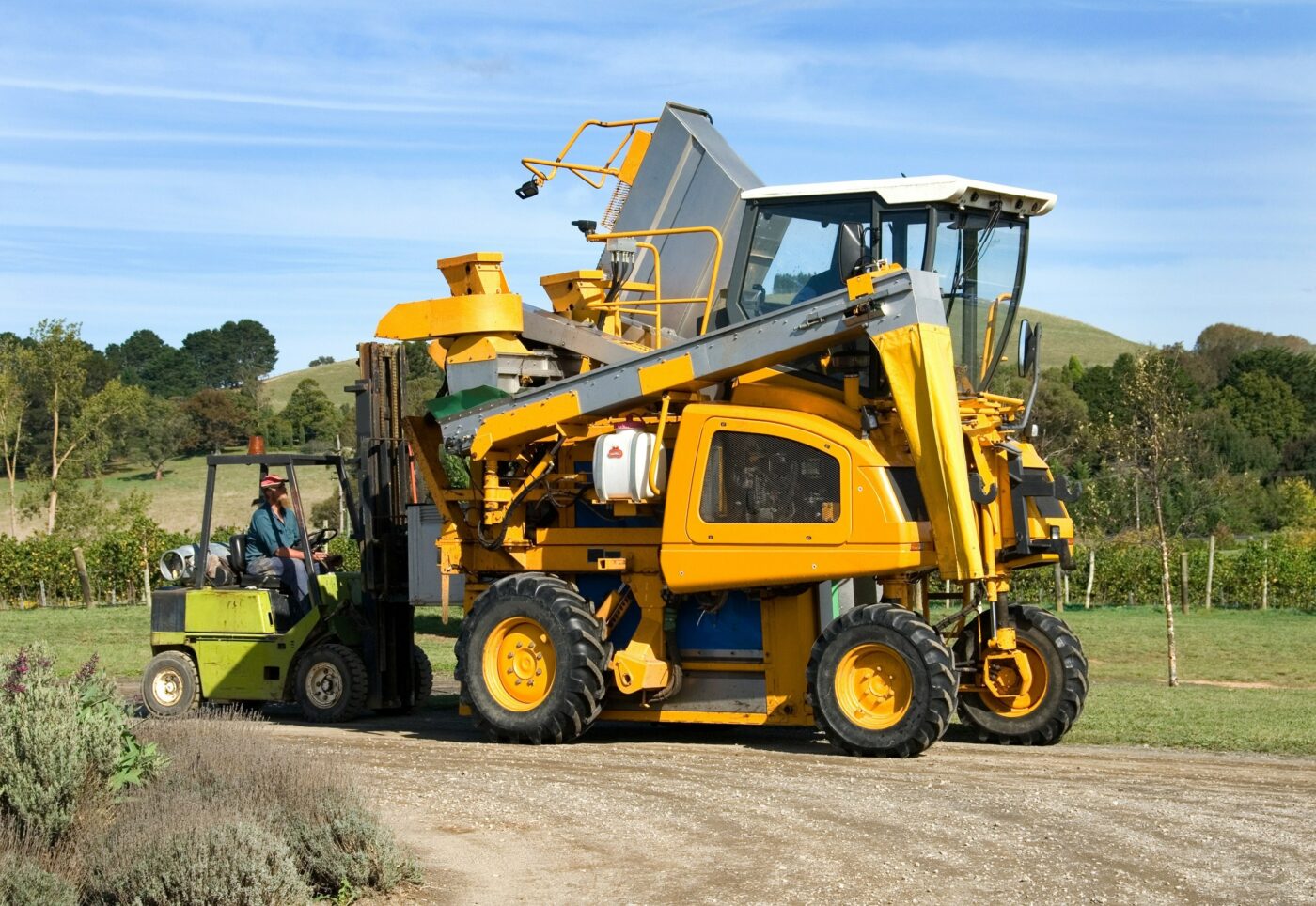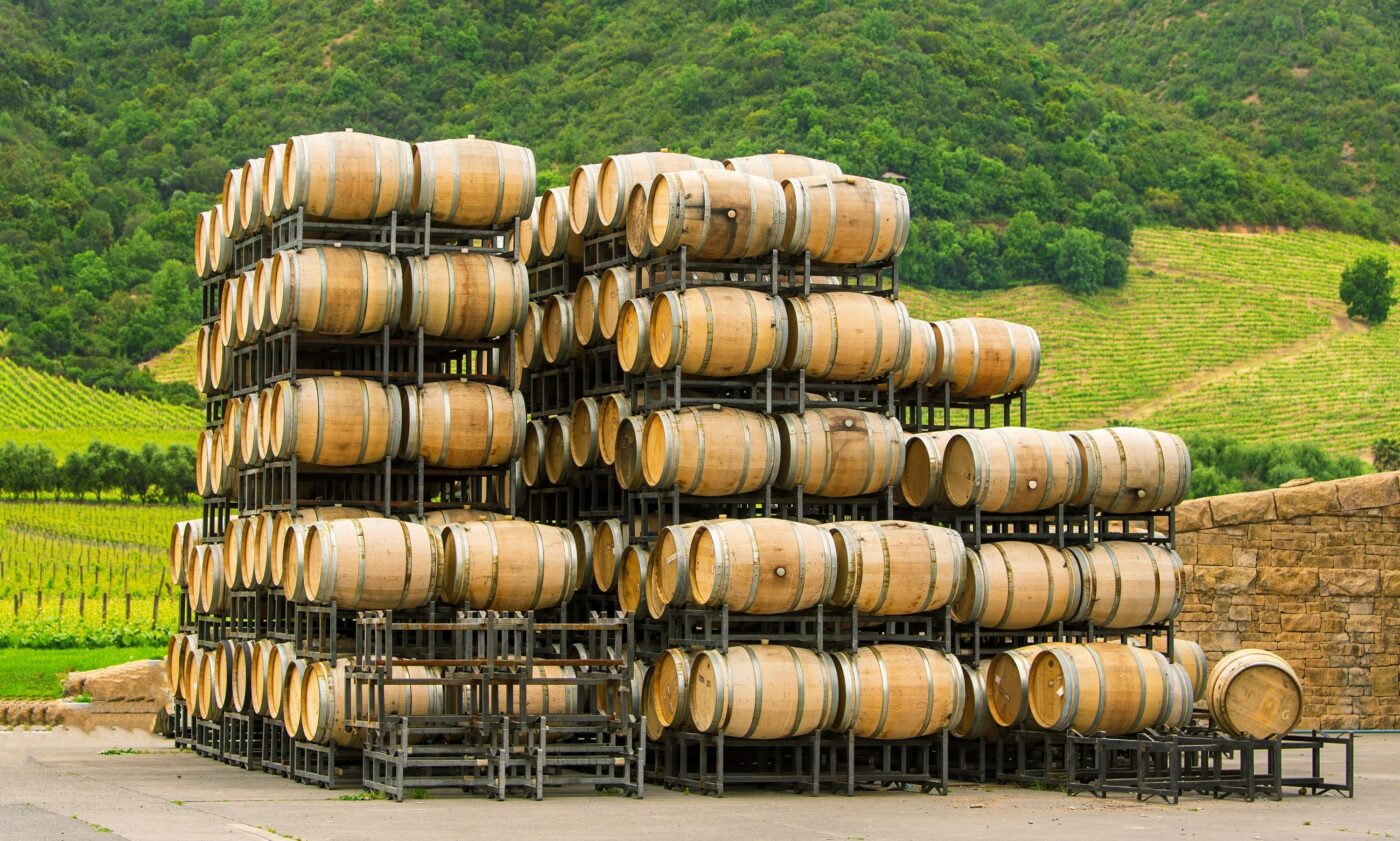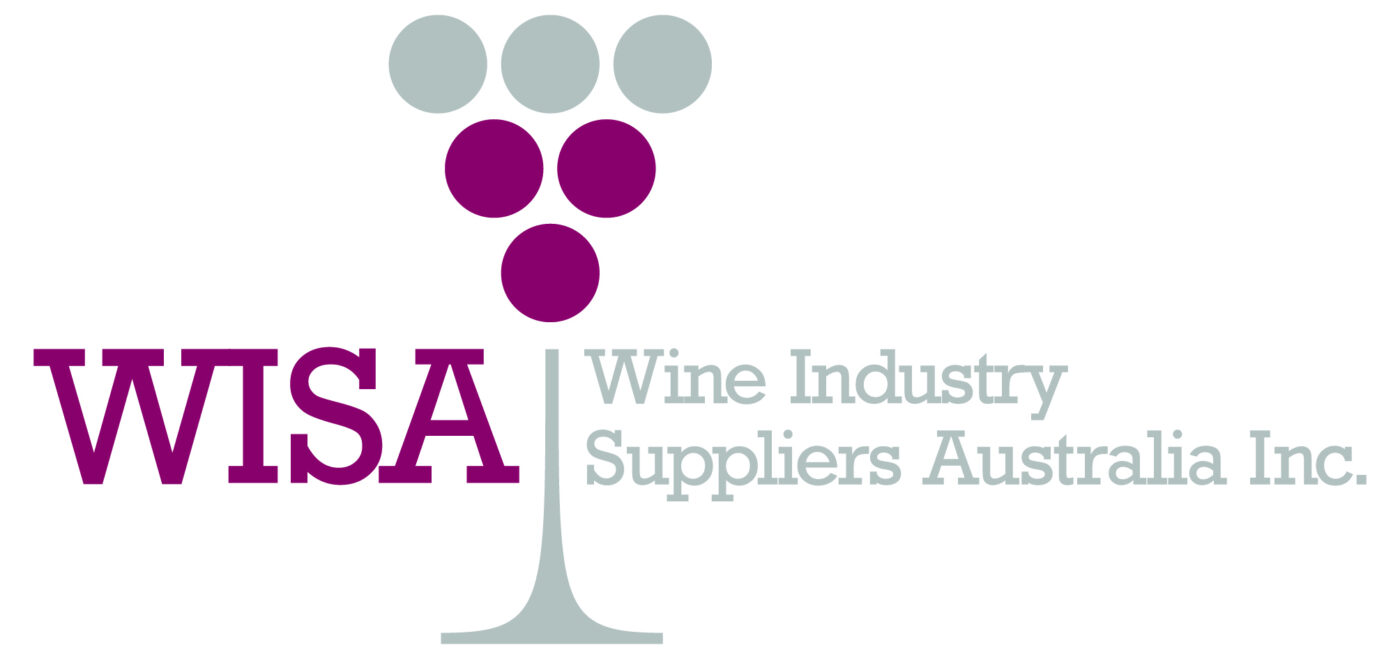From Artificial Intelligence (AI) implementation and smartphone innovation, to lobbying government on legislation and worrying about crop-killing bugs, there’s a lot on the proverbial plate for Wine Industry Suppliers Australia (WISA) - and therefore plenty to talk about with its Chief Executive Officer, Matthew Moate. But first, as DW Fox Tucker is unashamedly a wine-loving organisation, we all want to know how this lucky man ended up at the forefront of one of the trendiest, tastiest industries in the country.
“It’s my dad’s fault”, smiles Matthew. “As a teacher, he always said that, because I didn’t select the preferred subjects in year 12, I wouldn’t get into Uni. That was fine, I wasn’t planning on going to Uni. But nearing the end of high school I had a change of heart and I scoured the Uni courses to see which ones I could get into. Wine Marketing or Aged Care were my choices. It wasn’t a difficult decision. My first entry into the wine industry wasn’t a traditional pathway either, as I scored an entry level job in Freight Forwarding which led to a fast paced move through the operational ranks, then into sales which lead to setting up a New Zealand office, getting poached by a wine industry supplier, winning a national award and over time becoming what I guess you’d call a bit of ‘a face’ in the industry”.

Matthew’s contribution to the industry, through WISA, began with election to the board in 2009 after joining as a member in 2007 and being recognised as the Association’s 2008 Supplier of the Year Award winner. Election to the chair followed in 2010, and in 2013 he was asked by the board to take on the role of Executive Officer. Matthew has since transitioned from this role to become WISA’s Chief Executive Officer; cementing his position as one of the key cogs driving change and growth in the wine industry. He relishes the hard work and is deeply driven to achieve the best outcomes for every supplier and stakeholder along the wine value chain.
Unlike the more widely known national regulatory body, Wine Australia, which focusses on the frontline stakeholders like producers and wineries, WISA casts a much wider net to bring all vested suppliers and related businesses under one helpful wing. “Our member base is so broad”, Matthew explains, “because we represent the entire supply chain. Anyone from equipment manufacturers and ingredient producers, to law firms and tourism operators, we service, connect and advocate for anyone involved in getting grapes into glasses. Great wine relies on an innovative and dynamic supply chain.”
WISA has been working with this diverse and widely spread network of wine industry supplier stakeholders since 2000, following a strong call from the organisations themselves for some representation focussed on the value, capability and competitiveness they deliver to industry. “With members like yeast and chemical suppliers we’re not exactly on the sexy side of the wine industry, and you don’t see big profiles of us in the glossy mags”, jokes Matthew. “But with 45,000 professionals working in the grape and wine supply chain, we have a very strong platform for those needing a voice ... and WISA has had significant success in helping ensure the smoothest transition possible for our members into an era of tightened legislation, ground-breaking technology and vast shifts in the way the market works.”
Blanket stink bug regulations threaten wine barrel makers
When asked about what crucial issues are ongoing right now, the first words out of Matthew’s mouth are “Brown Marmorated Stink Bug”. A particularly nasty strain of stink bug which “infests in plague proportions, sucking out all the goodness of vines and fruit, destroying crops and can infest buildings in its path”. The Brown Marmorated Stink Bug has yet to find its way to Australian shores, and the government understandably wants to keep it that way, so there are strict blanket regulations around the treatment of a range of high risk products, which depart various target origin countries on a shipment to Australia between 1 September and 30 April (the stick bug’s preferred method of travel when wanting to escape a cold European winter). One product that is caught up in this is oak barrels - imported for wine making purposes.
“But here’s the thing”, Matthew explains, “a finished oak wine barrel is already subject to incredibly stringent food grade safety regulations, in fact it’s legally considered an ingredient, so the processes a wine barrel already goes through is more than enough to ensure there are no bugs on board. What’s more is the regulated bug heat treatment for standard timber can damage a wine barrel, excessively drying out the wood to cause leaking, and the additional costs and delays involved in the treatment permeate down the supply chain. All of which causes significant extra costs for industry, in extreme cases for smaller oak barrel distributors it could easily make their business unviable if they are unable to pass the costs on.”

So, what has WISA been doing about it? Intense lobbying to the government department for agriculture and water resources, ensuring the industry concerns are top of decision-makers’ minds, and campaigning for tailored exclusions in regulations. Relentless liaison between different stakeholders along the supply chain, ensuring that wine producers understand that it isn’t the oak suppliers who are to blame for the increased costs, bringing groups together and ensuring everyone fully understands what’s going on. “We also give expert advice and assistance where it’s needed, helping companies manage the change in their operations required to meet regulations in the smoothest way possible. We are confident that at least we can have a discussion with the department to safeguard oak producers from regulations for the upcoming 2019/20 season”.
Artificial Intelligence set to deliver highly desired cost efficiency
In stark contrast to the age-old challenges of crop-harming bugs and the logistics of moving barrels around, another of WISA’s big focusses at the moment is encouraging and supporting new technologies such as AI across Australian vineyards, to deliver badly needed efficiencies for growers and producers. Matthew sets the scene: “Wine industry overheads, costs per litre of product produced, are much higher and more difficult to manage than all-year-round drinks like beer and spirits. Wine is made once a year over three or four months, leaving high-cost infrastructure effectively a liability for the rest of the year. Huge competition from other countries with much lower production costs, a 60% export ratio, a uniquely intrinsic link to tourism and all the uncertainty that can bring. There are so many factors which make it especially hard to achieve the efficiency needed to compete in the world of wine… but luckily, there’s some exciting, super-efficient technology on the horizon that can provide Australian wine producers with a global competitive edge”.
WISA's ‘top 5 ones to watch’ in wine technology
- Nanosatellite technology will revolutionise communications between crop sensors, especially in areas where there is currently no terrestrial network, bringing sensor connectivity costs borne by farmers down to as little as $2 per device per year - compared with the current need for individual sims and basic mobile plans per device.
- Geospatial satellite imagery used in conjunction with AI is now being used to survey land and identify vineyards, allowing industry to have a much more accurate understanding of the national footprint and future investment requirements.
- Infrared spectrometry technology combined with automated GPS job management systems is making giant, cost-efficient leaps in allowing precision viticulture, where only parts of vineyards are treated rather than a blanket approach across a full vineyard. This provides savings on inputs such as sprays and labour costs.
- AI software is being used to help make faster, more effective decisions in manufacturing, at every point from managing tank farms to bottling, labelling and supply chain logistics.
- A $50 smartphone accessory now turns the device into a microscope, so a farmer on the vineyard can snap a bug or strange mark so AI can then determine the pest or disease and potentially provide a remedial course of action.
Matthew is clearly excited by innovations in WineTech. “We’re only just scratching the surface of the technology that will be part of the vineyard and wineries of the future. Our national and international connections provide a pathway for adoption by industry and allows Australia to stay ahead of the curve”.
WISA’s objective is to embrace this technology, track its capability and communicate the benefits effectively at every point in the wine supply chain, through a wide-ranging program of events, a dedication to connecting stakeholders with each other, and making sure no-one misses out on any innovations which apply to their side of the business. “We provide a platform for wine businesses big and small, to ensure they are part of the conversation and get their voices heard. Everything we do is about helping to connect and communicate, so together we can maintain and develop a strong, agile, dynamic market place at the forefront of all available technologies”.
So, what’s next for WISA?
“Watch out for WISA’s 2019 Wine Industry Impact Awards”, Matthew suggests. “We’re delighted that DW Fox Tucker has been a valued partner of these awards for nearly a decade and we’re really excited about this year’s competition, we have more than 140 wine businesses in our membership, and many of them have been doing incredible things over the last 12 months.”
“Plus of course we’ll be playing a big part at the national WineTech tradeshow and the Australian Wine Industry Technical Conference - to be held in Adelaide this July. It only happens every three years, so everyone who’s anyone in wine will be there, along with some jaw-dropping advances in wine production innovation. We can’t wait!”

All in all, it seems that with WISA’s help every business along the wine supply chain is in great shape to continue growing long into the future. And we’ll drink to that.
The WineTech Trade Exhibition takes place every three years. The next exhibition is happening this year at the Adelaide Convention Centre between 22nd and 24th July, with an industry conference running in tandem from 21st to 24th July. For more information phone +61 (0)409 783 221 or visit the WISA website: www.wisa.org.au
